Explore the Best AI Image Gallery
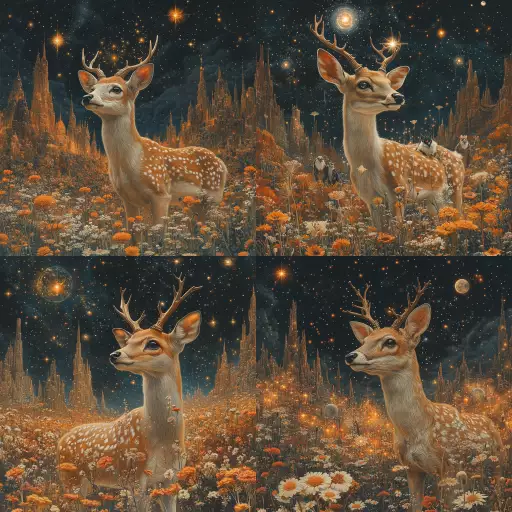
Blurring Lines: AI-Generated Media and the Ethics of Creativity
The realm of creativity is undergoing a profound transformation, driven by the rapid advancements in artificial intelligence (AI). AI-generated media, encompassing everything from text and music to images and videos, is blurring the lines between human and machine creation, sparking both excitement and trepidation.
A New Frontier in Creative Expression
AI-powered tools are empowering individuals and organizations to explore new frontiers in creative expression. Artists can leverage AI algorithms to generate unique visual concepts, compose intricate musical scores, or craft compelling narratives. Designers can utilize AI to iterate on designs, personalize experiences, and automate repetitive tasks. The potential applications of AI-generated media are vast and continue to expand.
Potential Uses Across Industries
- Content Creation: AI can assist in generating articles, blog posts, marketing copy, and even scripts for films and television shows.
- Art and Design: Artists can use AI to create unique artwork, design patterns, generate 3D models, and explore innovative visual concepts.
- Music Composition: AI algorithms can compose original music pieces in various genres, assist musicians in creating arrangements, and even generate sound effects.
- Education and Training: AI-powered tools can create interactive learning experiences, personalize educational content, and provide real-time feedback to students.
Ethical Considerations: Navigating Uncharted Territory
While the potential benefits of AI-generated media are undeniable, it also raises a number of ethical considerations that require careful attention:
Authorship and Ownership
When AI creates content, who owns the copyright? Is it the developer of the AI tool, the user who provides the input, or the AI itself? Establishing clear guidelines for authorship and ownership is crucial to prevent legal disputes and ensure fair compensation.
Bias and Discrimination
AI algorithms are trained on massive datasets, which can inadvertently contain biases that reflect societal prejudices. This can result in AI-generated content that perpetuates harmful stereotypes or discriminates against certain groups. It is essential to address bias in training data and develop mechanisms for mitigating discrimination in AI outputs.
Misinformation and Manipulation
The ability to generate realistic fake news, deepfakes, and other forms of synthetic media poses a significant threat to trust and authenticity. It is crucial to develop tools and techniques to detect and counter the spread of AI-generated misinformation.
Job Displacement
As AI becomes more sophisticated, it has the potential to automate tasks currently performed by human creators. This raises concerns about job displacement in the creative industries. It is important to consider the societal impact of AI and explore strategies for reskilling and upskilling workers.
Shaping the Future: Responsible Development and Collaboration
The ethical implications of AI-generated media require ongoing dialogue and collaboration among stakeholders, including developers, artists, policymakers, and the general public.
Key Considerations for the Future
- Transparency and Explainability: Making AI algorithms more transparent and understandable can help build trust and accountability.
- Human Oversight and Control: Ensuring that humans retain meaningful control over AI-generated content is essential to prevent unintended consequences.
- Education and Awareness: Raising public awareness about the capabilities and limitations of AI-generated media is crucial for informed decision-making.
- Regulation and Policy: Governments and regulatory bodies need to develop frameworks that address the unique challenges posed by AI-generated media, while fostering innovation.
AI-generated media has the potential to revolutionize creative expression, but it is essential to navigate this new frontier responsibly. By embracing ethical principles, fostering collaboration, and prioritizing human values, we can harness the power of AI to enhance creativity and shape a more inclusive and innovative future.



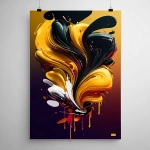

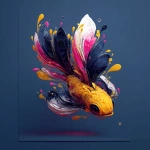




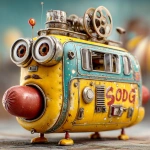

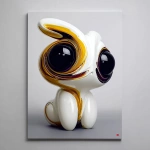
](https://images.ai-img.art/thumbnails/150/1e27efc61230ddeea782ff39387584979a5dd3cf9fbe2e4cee3ec914e0532911.webp)








](https://images.ai-img.art/thumbnails/150/3320a677680a2f94464f6216cf8382bb1b9a97f9cd4a0a4b4712c560b54c3777.webp)
](https://images.ai-img.art/thumbnails/150/535240dc01867eb2128d119ddaca2f334ddf6d4493dbecc3a97ac706daadabea.webp)
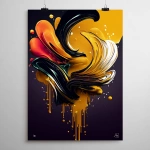

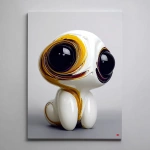

](https://images.ai-img.art/thumbnails/150/73bbb4077b1c8b4dd4dc7975d26364d205880bb6ad33f54162fff722bd4088c2.webp)





](https://images.ai-img.art/thumbnails/150/5785057b45af6f3ff53dea128c055c735b4b5a9e006a98ff04bc51ffe2c53954.webp)



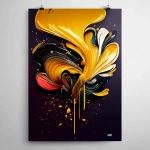
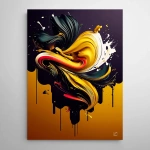


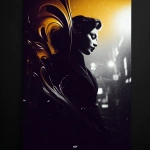

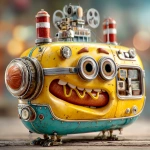
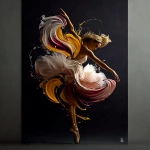

](https://images.ai-img.art/thumbnails/150/91d6a1806b2e6126bb73c13c85c3f5d53a511d5c3af925a2c64c0f5a62e3b815.webp)

